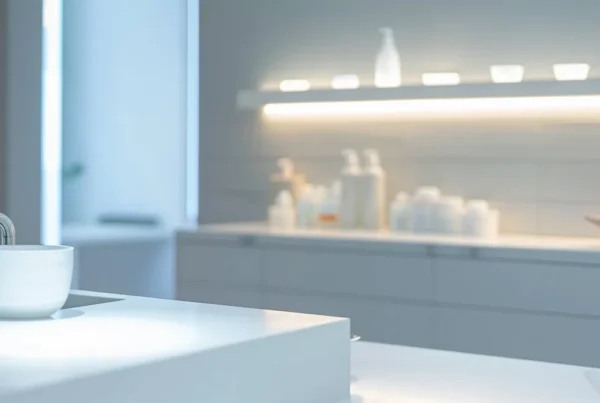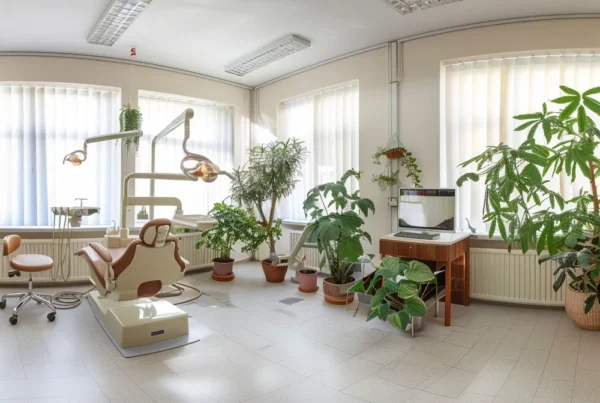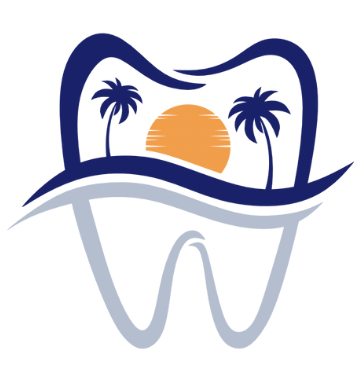Is traditional cosmetic dentistry causing you more pain than you expected? Many are shifting towards biological dentistry, which emphasizes biocompatible materials and minimally invasive techniques. In this blog post, readers will learn the core principles of biological dentistry, the importance of preventive care, and how to integrate holistic healing with traditional practices. By addressing common concerns and improving oral health, this content will guide individuals towards a more comfortable and effective dental experience. If you’re seeking a more patient-centric approach, you’re in the right place!
Key Takeaways
- Biological dentistry prioritizes patient comfort and overall well-being during dental treatments
- Non-toxic materials reduce harmful exposure and support holistic health approaches
- Minimally invasive techniques lead to quicker healing and improved recovery times
- Tailored treatment plans enhance patient satisfaction and foster trust with dental professionals
- Regular check-ups are vital for early detection and preventive care in dental health
Wondering how much your treatment will cost?
Share a few details, and we’ll provide a personalized estimate just for you!Understand Biological
Understanding the Core Principles of Biological Dentistry

Biological dentistry emphasizes the relationship between oral health and overall well-being. A holistic dentist in a village perio setting looks at how dental materials and treatments affect a person’s health, ensuring choices that align with natural health care principles. This approach often takes into account the impact of certain vitamins that promote recovery and maintain good health. To get started, you can request appointment with a specialist.
One of the core principles is to create a stress-free environment that nurtures patient comfort. Sleep quality is recognized as a vital factor in healing, and biological dentists work to minimize anxiety during visits. This attention to patient experience can lead to improved results and quicker recoveries.
Biological dentistry also promotes non-toxic materials to reduce harmful exposure, aligning with a more natural lifestyle. The philosophy here is about supporting the body’s natural defenses and optimizing health care through informed choices. Patients can trust that their treatment will enhance not only their dental health but also their overall well-being.
Utilizing Biocompatible Materials in Treatments

Material safety plays a crucial role in dental procedures, especially for biological dentists focused on holistic practices. Common biocompatible materials, such as ceramics and resin composites, support dental rejuvenation without harmful metals. Additionally, assessing each patient’s specific material needs ensures optimal treatment outcomes, often enhanced by techniques like ozone therapy and the use of safe toothpaste alternatives.
Importance of Material Safety in Dental Procedures
Material safety is a cornerstone of biological dentistry, ensuring that the substances used in dental procedures promote health rather than compromise it. Patients concerned about traditional amalgam fillings can rest assured that biocompatible materials, such as resin composites, offer effective alternatives without toxic metals. Furthermore, using natural products like mouthwash infused with essential oils can support saliva production and enhance oral health, fostering a healing environment.
- Focus on biocompatible materials for dental treatments.
- Choose non-toxic substitutes for amalgam fillings.
- Incorporate natural mouthwash with essential oils.
- Enhance saliva production for improved healing.
- Prioritize patient comfort and overall well-being.
Common Biocompatible Materials and Their Uses
Common biocompatible materials used in biological dentistry include ceramics and advanced resin composites. These materials are preferred for their safety profile, as they effectively support the biology of the jaw while minimizing fear associated with traditional treatments. Knowledge of these innovations helps patients feel more at ease, knowing they are choosing alternatives that prioritize their health and comfort.
- Ceramics for natural-looking restorations.
- Resin composites as safe substitutes for amalgam fillings.
- Assessment of individual material needs to enhance treatment outcomes.
- Use of additional safe therapies, like ozone therapy.
Assessing Patient-Specific Material Needs
Each patient presents unique needs when it comes to material selection in biological dentistry. Assessing these needs often involves gathering patient forms that detail health history and preferences, which influence the choice of biocompatible materials. Incorporating techniques such as ozone therapy can further promote detoxification and support dental care, while minimizing stress to create a comfortable atmosphere during treatment.
Implementing Minimally Invasive Techniques

Reduced trauma during dental treatments significantly enhances patient comfort and promotes quicker healing. Techniques aimed at preserving natural tooth structure not only support sustainability in dental practices but also help minimize inflammation. Case studies showcasing successful minimally invasive procedures illustrate the positive outcomes of this approach, emphasizing how it aligns with a patient’s lifestyle while prioritizing their overall health.
Benefits of Reduced Trauma in Dental Work
Reduced trauma during dental work not only enhances patient comfort but also boosts the immune system’s response. Minimally invasive techniques minimize the risk associated with more extensive surgery, making the healing process smoother and quicker. By focusing on preserving natural tooth structure, biological dentistry promotes overall health and aligns with principles of alternative medicine, addressing patients’ needs for effective and compassionate care.
Techniques for Preserving Natural Tooth Structure
Techniques for preserving natural tooth structure focus on maintaining the integrity of the mouth while promoting holistic health. This can include practices like using laser treatments instead of traditional drills, which reduce the need for fluoride and minimize trauma during procedures. By emphasizing proper hygiene and implementing minimally invasive techniques, dental professionals can help patients achieve better long-term outcomes, especially during a pandemic when maintaining oral health is more important than ever.
Case Studies on Minimally Invasive Success
Research has shown that minimally invasive techniques in biological dentistry can significantly reduce systemic inflammation, promoting a healthier recovery. For instance, studies involving laser treatments demonstrated how patients experienced less pain and quicker healing times compared to traditional methods. Additionally, integrating discussions about breathing exercises and diet in treatment plans helps enhance overall well-being, making dental visits less daunting and more effective.
- Research supports minimally invasive techniques to reduce inflammation.
- Use of laser treatments minimizes pain and promotes healing.
- Incorporating breathing and dietary guidance aids patient recovery.
Focusing on Preventive Care and Education
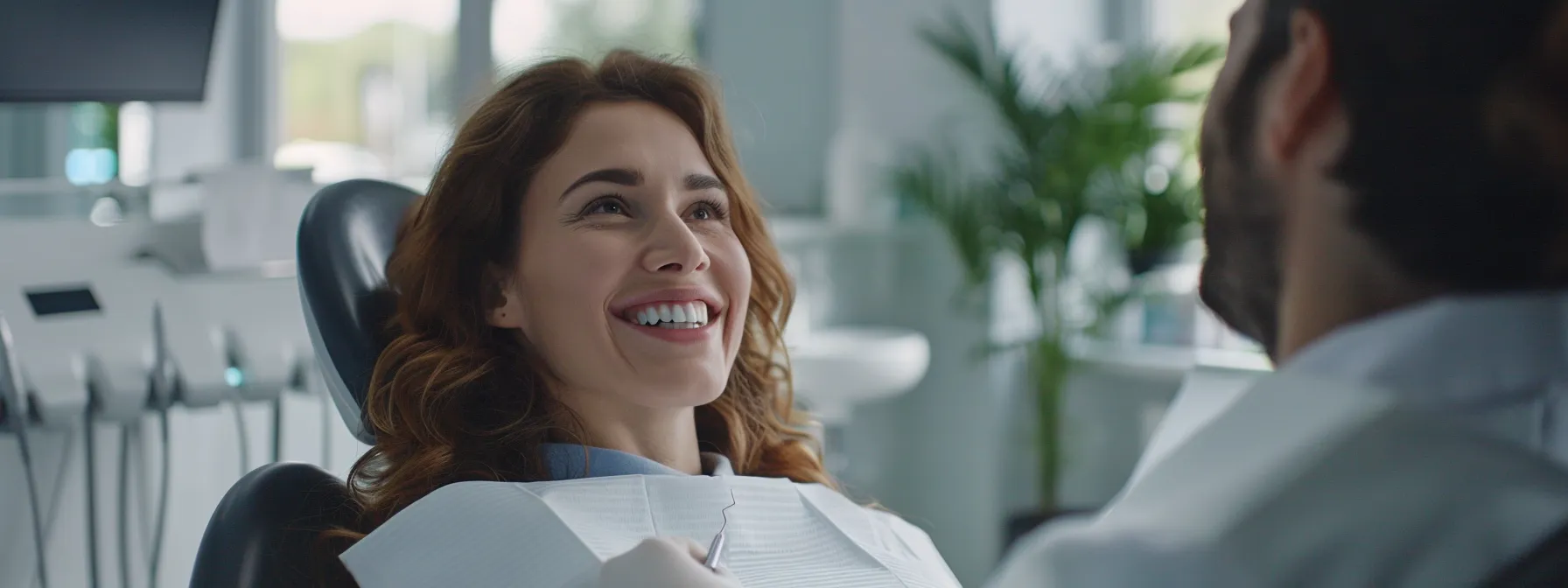
Strategies for educating patients on oral health focus on enhancing awareness about practices that promote well-being. Creating personalized prevention plans, including options like clear aligners and saliva testing, supports individual needs. Regular check-ups play a crucial role in prevention, ensuring that patients receive comprehensive care without the stress often associated with traditional dentistry or sedation options.
Strategies for Educating Patients on Oral Health
Educating patients about oral health is essential for fostering good habits and understanding the connection between nutrition and dental health. By discussing how toxicology affects the body and how certain bacteria can impact teeth, patients gain valuable insights into maintaining their oral hygiene. Sharing practical tips on nutrition that support tooth strength and overall well-being empowers individuals to make informed choices, which can lead to healthier mouths and bodies.
Creating Personalized Prevention Plans
Creating personalized prevention plans in biological dentistry is all about addressing individual health needs and minimizing issues like tooth decay. By incorporating evidence-based tips tailored to each patient, practitioners can enhance their quality of life and maintain healthy tissue. This customized approach not only educates patients but also empowers them to take proactive steps in their oral care, giving them the tools to achieve better overall health and reduced dental concerns.
The Role of Regular Check-Ups in Prevention
Regular check-ups play an essential role in biological dentistry by ensuring early detection of potential issues, thus enhancing patient accessibility to therapies designed to minimize toxicity. Through consistent monitoring, practitioners can recommend preventative measures and treatments, such as the use of porcelain materials for restorations that reduce exposure to harmful substances. This proactive approach not only fosters better oral health but also contributes to overall well-being, illustrating the importance of making these appointments a priority in one’s health routine.
Integrating Holistic Healing With Traditional Practices

Understanding the mind-body connection in dental care underscores the importance of holistic healing in promoting longevity and gum health. This section introduces alternatives to conventional treatments, emphasizing how they can facilitate healing. Additionally, it highlights the role of nutrition in oral health, considering individual medical history to create effective solutions tailored to patients’ needs.
Understanding the Mind-Body Connection in Dental Care
Understanding the mind-body connection in dental care is essential for promoting both oral health and overall wellness. A healthy diet plays a significant role in preventing disease, and oral hygiene practices directly impact how the body responds to treatment. By focusing on biocompatibility in dental materials and minimizing factors like radiation exposure, patients can achieve better health outcomes while feeling more connected to their treatment journey.
- Recognizes the importance of the mind-body connection in health.
- Emphasizes a healthy diet as key to preventing disease.
- Links oral hygiene practices to overall wellness.
- Prioritizes biocompatibility in dental materials.
- Aims to minimize harmful factors like radiation exposure.
Alternatives to Conventional Treatments
Alternatives to conventional treatments in biological dentistry focus on using methods that nurture the natural environment of the mouth while prioritizing patient comfort. For instance, orthodontics may incorporate clear aligners that are less intrusive than traditional metal braces and can encourage better dental hygiene, especially when paired with effective dental floss techniques. Additionally, utilizing a dental dam during procedures can enhance safety and comfort, fostering a positive experience that aligns with the goals of dental public health.
The Role of Nutrition in Oral Health
The role of nutrition in oral health is essential, as what individuals consume directly impacts their teeth and gums. Nutrient-rich foods provide the minerals necessary for maintaining strong teeth and healthy gums, supporting practices rooted in periodontology. Innovations in dietary approaches can also enhance energy levels and mental clarity, highlighting the importance of a well-balanced diet that nurtures both the body and mind for optimal dental health.
Addressing the Link Between Oral and Systemic Health
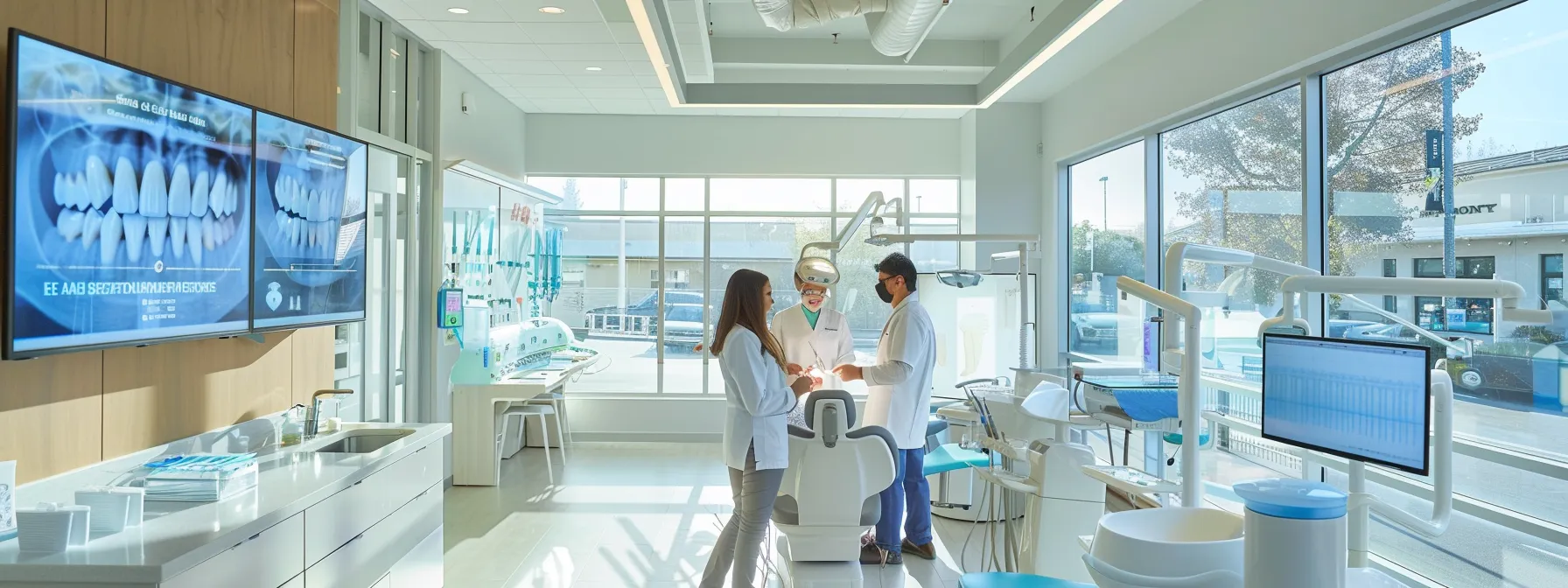
Dental professionals in biological dentistry emphasize the connection between oral health and systemic conditions. Recognizing dental signs of broader health issues can lead to earlier interventions. Implementing whole-body health strategies and collaborating with other health professionals ensures a comprehensive approach, supporting optimal well-being for patients. Each of these aspects plays a vital role in maintaining overall health through effective dental care.
Recognizing Dental Signs of Systemic Conditions
Recognizing dental signs of systemic conditions is essential for understanding the connection between oral health and overall well-being. For instance, issues like gum disease could indicate diabetes or heart problems, while persistent bad breath might suggest underlying gastrointestinal issues. By monitoring these signs, patients can better engage with their healthcare providers and take proactive steps in their dental care to support overall health.
Strategies for Implementing Whole-Body Health Approaches
Implementing whole-body health approaches in biological dentistry involves a collaborative effort among dental professionals, nutritionists, and healthcare providers. By sharing insights on how diet and lifestyle affect dental and systemic health, patients can gain a clearer understanding of their well-being. For instance, discussing the benefits of nutrient-rich diets and regular exercise can lead to better health outcomes, reinforcing the idea that oral care is just one piece of the larger health puzzle.
Collaborative Care With Other Health Professionals
Collaborative care with other health professionals is a cornerstone of biological dentistry, fostering a holistic approach to patient health. By working alongside nutritionists, physicians, and specialists, dental practitioners can create comprehensive treatment plans that address both oral and systemic health needs. This teamwork not only enhances patient outcomes but also ensures that all aspects of a person’s well-being are considered, leading to more informed decisions and better overall care.
Developing a Patient-Centric Approach
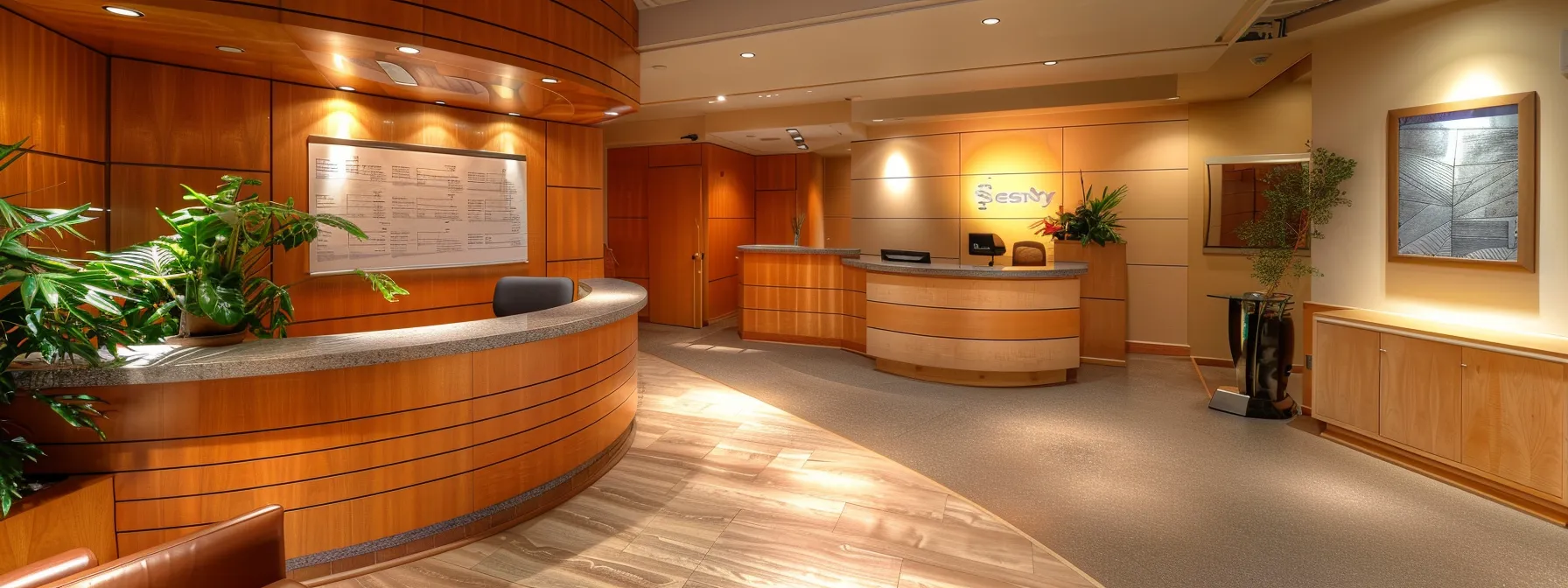
Building trust and effective communication with patients is fundamental in biological dentistry. Creating customized treatment plans tailored to individual needs enhances patient satisfaction and outcomes. Gathering patient feedback fosters continuous improvement, ensuring the practice adapts to meet evolving needs. Each of these elements plays a critical role in developing a patient-centric approach that prioritizes well-being and comfort.
Building Trust and Communication With Patients
In biological dentistry, building trust and maintaining open communication with patients is essential for creating a positive experience. When practitioners take the time to listen to patients’ concerns and provide clear explanations about treatments, it fosters a sense of partnership. This approach not only enhances the patient’s comfort level but also empowers them to make informed decisions regarding their oral health, ultimately leading to better treatment outcomes.
Creating Customized Treatment Plans
Creating customized treatment plans is an essential aspect of biological dentistry that ensures each patient’s unique health needs are prioritized. For example, a dentist might assess individual factors such as allergies, personal health history, and treatment goals to craft solutions that not only enhance dental health but also support overall well-being. This personalized approach encourages open communication and builds trust, allowing patients to feel more involved in their care journey:
Gathering Patient Feedback for Continuous Improvement
Gathering patient feedback is a crucial practice in biological dentistry that drives continuous improvement in care. By inviting patients to share their experiences and suggestions, dental professionals can tailor their services to better meet individual needs, ensuring that treatments are as effective and comfortable as possible. This proactive approach not only enhances patient satisfaction but also strengthens the trust between practitioners and those receiving care, ultimately leading to healthier outcomes.
Conclusion
Biological dentistry prioritizes the connection between oral and overall health by using safe, biocompatible materials and minimally invasive techniques. Promoting patient comfort and trust enhances the treatment experience and encourages proactive oral care. By fostering a preventive approach and integrating holistic practices, dental professionals can empower patients to make informed decisions about their health. Embracing these best practices significantly contributes to improving patient outcomes and supports a sustainable, health-focused approach to dental care.
Get Started Today
Looking for dental care that makes you actually look forward to appointments? (Yes, really!) From the moment you step into our warm, welcoming office, you’ll notice something different – a team that treats you like family while delivering the exceptional care you deserve.
Meet Dr. Nazita Gaff and our dedicated crew, where state-of-the-art dentistry meets genuine, down-to-earth care. Whether you’re dreaming of a brighter smile, seeking relief from jaw tension, or just want a dentist who truly gets it, we’ve created the kind of experience we’d want for our own loved ones. Ready to transform how you think about dental visits? Your new dental home awaits!
Schedule your consultation Today!
28202 Cabot Rd, Suite 600 Laguna Niguel, CA 92677

